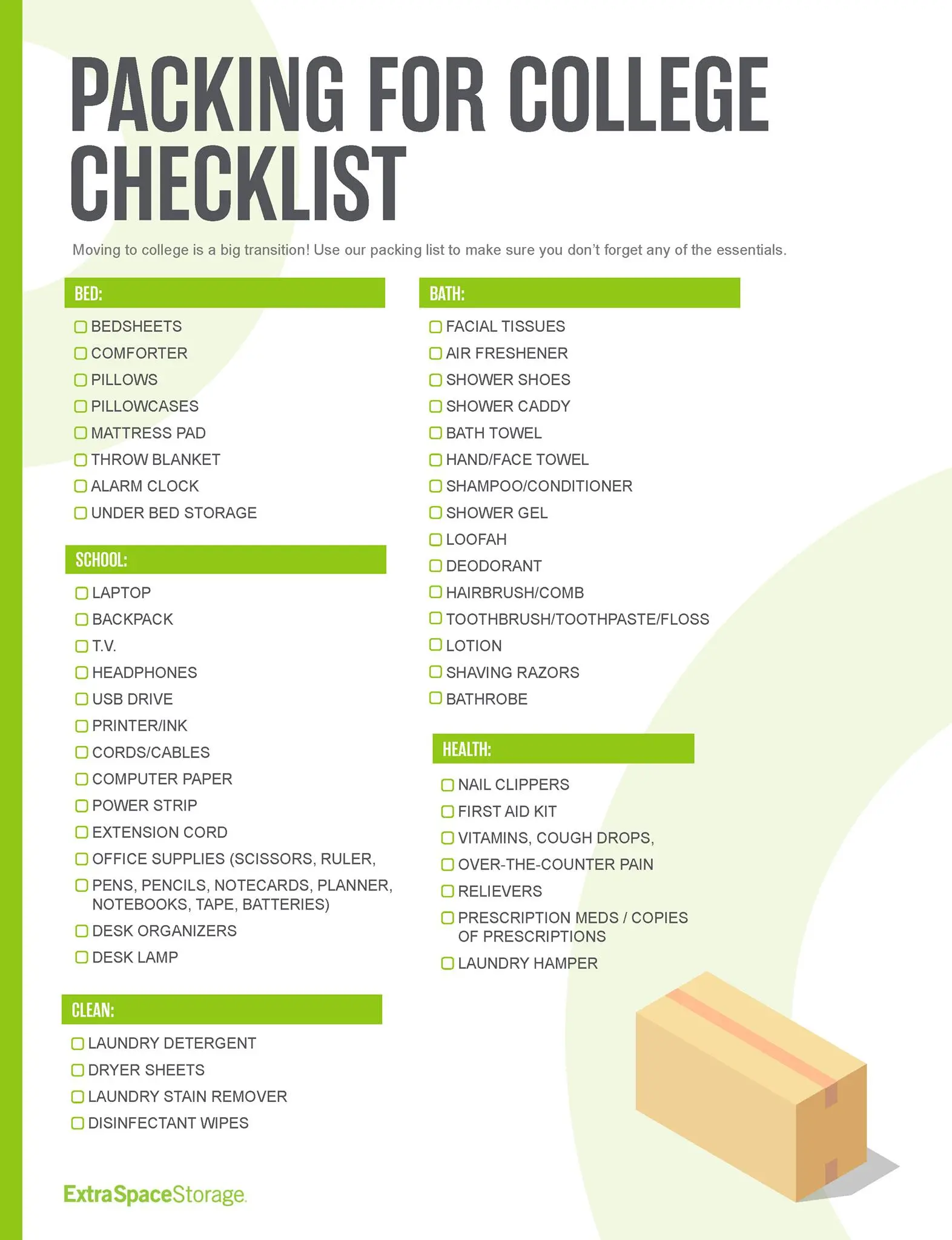Moving away to college can be daunting, especially if it’s far from home. There’s so much to worry about: Dorm rooms or apartments, maybe a house? What’s your vehicle situation, jobs, food, school supplies, and finances? Everything seems to pile up each time you think about college, which creates unnecessary stress. When we take on defeating the monster that college is, one step at a time, we will find that it truly isn’t that scary at all.
As children, most of us, if not all of us, were taught that the three essentials for life are food, water and shelter. The first thing to do when college planning is to figure out how to fulfill these necessities; you will need a source of income, and don’t plan further until you have it. Before moving to college, after the prerequisite condition of securing an income is securing a place to live. Whether that’s the dorms provided or a different form of lodging. When choosing a place to live, you should observe your surroundings. Do you have a place to park your car? If you don’t have a washing machine, where can you go to use one? Grocery stores, gas stations, etc. After you’ve mapped the area out and decided on a place to live, you should ask yourself if you want roommates. If you’re in a dorm, ask yourself, if you have the option, who you would choose as your roommate. If you have the opportunity to choose a roommate, you should have criteria for them. Is this person safe to be around? Are they responsible for bills and lodging upkeep? You should be cautious with this step. If you choose to have a roommate, communicate with them before you move in together, decide on the living conditions you have, and address the financial side of cohabitation, maybe even talk about decor. Just communicate.
Once you found a space to live in, and possibly roommates, have been secured, we can check shelter off the list and move on to food and water. As we already covered in the mapping step when choosing our college home, we should know where laundromats, grocery stores and other general things are located, we should do the same inside our homes. What appliances do the renters or dorm facilitators offer? The last thing you want to do is waste money on things that you already have. Once you know what’s offered, be practical with your shopping. Before you buy any decor, purchase cooking supplies, a mattress, towels and anything you use daily that won’t be provided. Go one step further and please tend to your well-being and hygiene as a subset in this step. Toothbrushes, deodorant, hairbrushes, the hygiene section of the grocery store is your oyster. Only after these steps should you pay any attention to decor.

On the liabilities side of this plan, such as furniture, be thoughtful with your spending. If you’ve followed this guide up to this point, I assume that your living space budget has probably taken a major hit. That’s okay. Keep in mind that necessities are all that matter, and be glad to have those things covered in your plan. Decorations can make a place feel like home, so let’s not completely throw those out the window. The number one thing you should start off with is the first step of the two previous asset-serving actions we took. Know your inventory. Do you already have bed sheets, books and a desk? Money management isn’t stressed enough, no matter how much it’s repeated; the last thing you want to do is waste money on things that you already have. Make a list of your belongings and from that point decide what else you will need. Now that you’re finally ready to shop, remember to shop thoughtfully. Try upcycling furniture to save money. Thrifting, garage sales, family members, and friends who have things that they don’t want anymore are all good, cost-friendly routes to get decorations and a few necessities. However, you should keep your space limitations in mind before purchasing anything.
Ready to move now? Now that you’ve picked a place to live, chosen roommates, secured a form of income, and purchased necessities and liabilities, you are ready to set out for college. Depending on how far away from home your school of choice is will dictate the best course of action to get there and the best way to transition your stuff to your new home. If you’re moving cross-country, consider hiring professional movers or renting a moving truck for more efficiency. If you’re moving a short distance to college, it could be more budget-friendly to ask friends and family to help transport items in their vehicles. Other options include shipping your items ahead of time through companies like FedEx or renting a portable moving container (maybe consider renting storage if you have too much stuff to move). Keep in mind that whatever you move to college will have to move with you when you’re done with your education.
Once you have settled into your new environment and all of the hard work has been taken care of, don’t forget to enjoy yourself. It is going to be stressful packing up your whole life and going to a place you’ve never been before, especially if your destination is far away. The best thing you can do for yourself is to simplify this process. Not everything has to be done in one day; do not be afraid to take your time. You want to go to college prepared; the best way to do that is to double-check that you have everything you need.




















